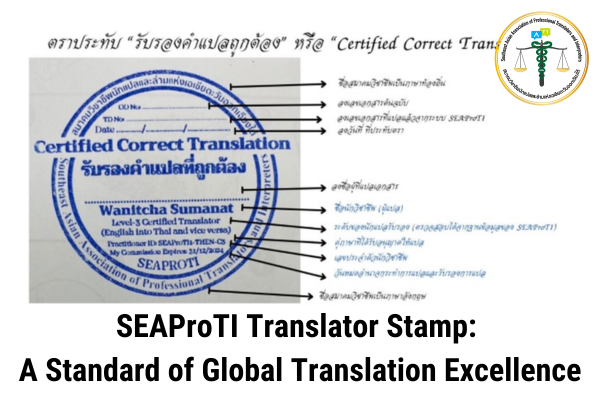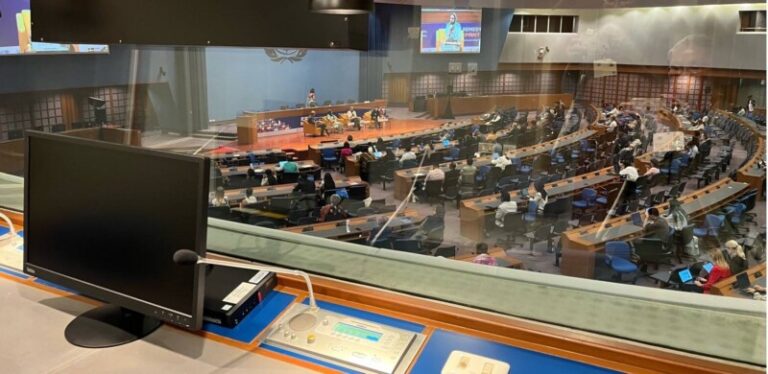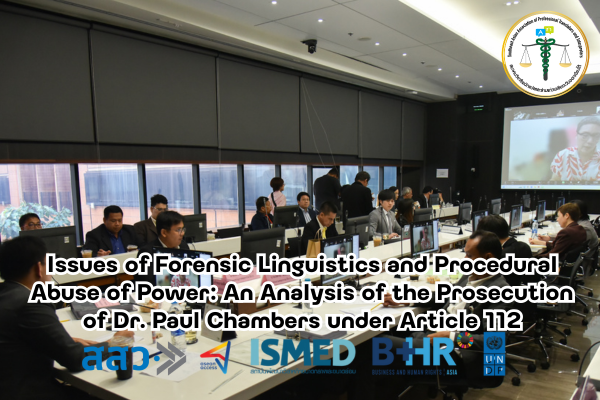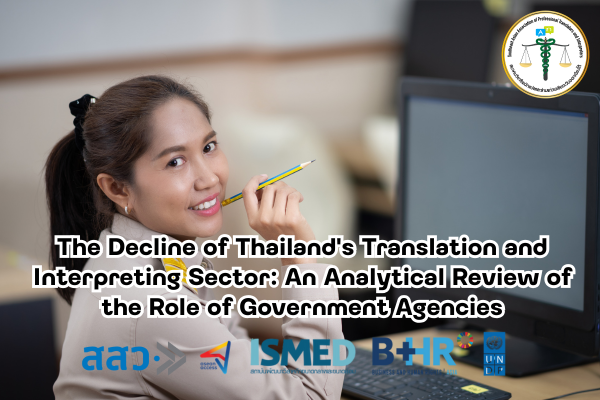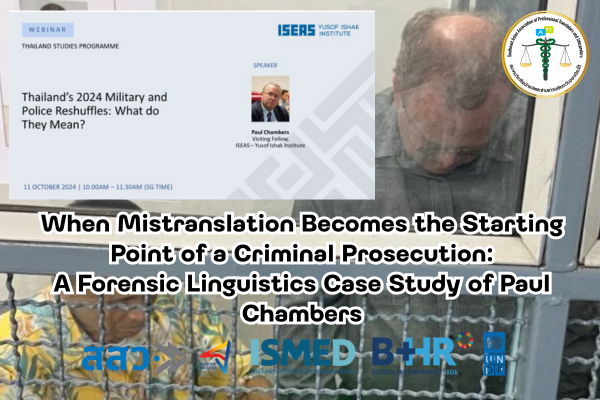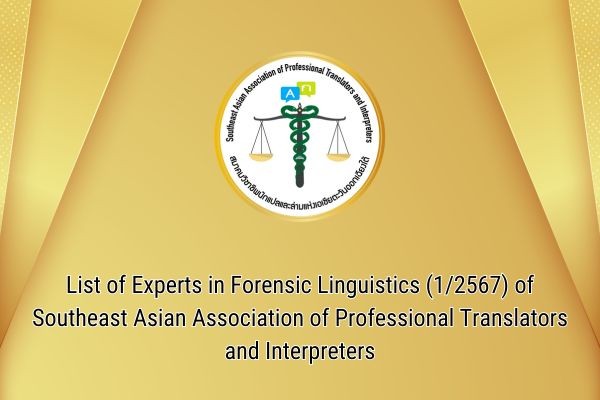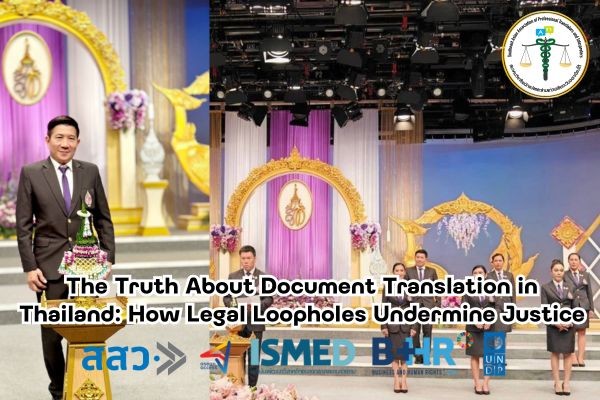Overtranslation in Language Translation: When Too Much Becomes a Problem
One of the key challenges in translation, especially in professional work, is maintaining accuracy without unnecessary expansion. Overtranslation happens when a translator creates two units of translation where the original has only one, resulting in an unnatural outcome. Unlike explicitation, which might be needed for clarity, overtranslation often leads to redundancy or a distortion of the original meaning.
Spotting Overtranslation: Less Is More
Overtranslation often occurs when a translator splits a single idea into multiple words instead of capturing its essence concisely. For example:
English: The families of the strikers were compelled to go to the City Hall to look for the soup which their men had refused.
Overtranslated Thai: ครอบครัวของผู้ประท้วงถูกบังคับให้ไปที่ศาลากลางเพื่อตามหาซุปที่ผู้ชายของพวกเขาปฏิเสธ
Here, “to go to look for” becomes “ไปเพื่อตามหา” (go to look for), which feels overly long. In Thai, simply “ไปเอา” (go get) or “ไปรับ” (go pick up) works better. Plus, “soup” might not fit as well as “อาหาร” (food), which sounds more natural and broader in this context.
Overtranslating Idioms: From Fixed to Overdone
Another form of overtranslation is when a dead metaphor—something so common it’s no longer seen as figurative—gets turned into a live metaphor, making it sound odd in the target language. For example:
English: A window of opportunity
Overtranslated Thai: หน้าต่างแห่งโอกาส (window of opportunity)
Better Thai: โอกาส (opportunity)
The phrase “a window of opportunity” is well-understood in English, but translating it literally as “หน้าต่างแห่งโอกาส” feels forced in Thai. Just “โอกาส” is enough and sounds elegant.
Cultural Adjustment: Avoiding Unnecessary Literalism
Overtranslation also happens when a translator forces imagery from the source language into the target language, even when a better idiom exists. For example:
English: There are no silver bullets.
Overtranslated Thai: ไม่มีกระสุนเงิน (no silver bullets)
Better Thai: ไม่มียาวิเศษ (no magic cure)
“Silver bullet” in English means a quick, effective fix, but “กระสุนเงิน” doesn’t resonate in Thai. Using “ยาวิเศษ” (magic cure) or even “วิธีแก้ตายตัว” (fixed solution) conveys the idea more naturally and fits Thai cultural context.
Conclusion: Balance Is Key
Overtranslation often stems from overanalyzing the source text without considering the natural flow of the target language. A good translator knows when to trim words, adapt idioms to the culture, and avoid literal accuracy that sacrifices fluency. By steering clear of overtranslation, we preserve not just fidelity but also readability, making the translation feel like it was written in that language from the start.
SEAProTI’s certified translators, translation certification providers, and certified interpreters:
The Southeast Asian Association of Professional Translators and Interpreters (SEAProTI) has officially announced the criteria and qualifications for individuals to register as “Certified Translators,” “Translation Certification Providers,” and “Certified Interpreters” under the association’s regulations. These guidelines are detailed in Sections 9 and 10 of the Royal Thai Government Gazette, issued by the Secretariat of the Cabinet under the Office of the Prime Minister of the Kingdom of Thailand, dated July 25, 2024, Volume 141, Part 66 Ng, Page 100.
To read the full publication, visit: the Royal Thai Government Gazette
การแปลเกินในการแปลภาษา: เมื่อมากเกินไปกลับไม่ดี
หนึ่งในความท้าทายสำคัญของการแปล โดยเฉพาะในงานระดับมืออาชีพ คือการรักษาความถูกต้องของเนื้อหาโดยไม่ทำให้เกิดการขยายความเกินความจำเป็น การแปลเกิน (overtranslation) เกิดขึ้นเมื่อนักแปลสร้างหน่วยคำแปลสองหน่วยจากที่ต้นฉบับมีเพียงหน่วยเดียว ส่งผลให้คำแปลดูไม่เป็นธรรมชาติ ซึ่งต่างจากการขยายความเพื่อความชัดเจน (explicitation) ที่อาจจำเป็นในบางกรณี การแปลเกินมักนำไปสู่ความซ้ำซ้อนหรือบิดเบือนความหมายดั้งเดิม
การจับผิดการแปลเกิน: น้อยแต่มาก
การแปลเกินมักเกิดขึ้นเมื่อนักแปลแยกแนวคิดเดียวออกเป็นหลายคำ แทนที่จะสรุปสาระสำคัญให้กระชับ เช่น
ภาษาอังกฤษ: The families of the strikers were compelled to go to the City Hall to look for the soup which their men had refused.
คำแปลที่เกิน: ครอบครัวของผู้ประท้วงถูกบังคับให้ไปที่ศาลากลางเพื่อตามหาซุปที่ผู้ชายของพวกเขาปฏิเสธ
ในที่นี้ วลี “to go to look for” ถูกแปลเป็น “ไปเพื่อตามหา” ซึ่งยาวเกินไป ในภาษาไทยเราสามารถใช้แค่ “ไปเอา” หรือ “ไปรับ” ได้ง่ายๆ และ “ซุป” อาจไม่เหมาะเท่า “อาหาร” ที่ฟังดูเป็นธรรมชาติและกว้างกว่าสำหรับบริบทนี้
การแปลเกินในสำนวน: จากตายตัวกลายเป็นมีชีวิต
อีกตัวอย่างหนึ่งของการแปลเกินคือการแปลสำนวนตายตัว (dead metaphor) ที่ไม่รู้สึกเป็นนัยภาพอีกต่อไป ให้กลายเป็นสำนวนที่มีชีวิต (live metaphor) ซึ่งทำให้ดูแปลกในภาษาปลายทาง เช่น
ภาษาอังกฤษ: A window of opportunity
คำแปลที่เกิน: หน้าต่างแห่งโอกาส
คำแปลที่ดีกว่า: โอกาส
สำนวน “a window of opportunity” ในภาษาอังกฤษเป็นสำนวนที่เข้าใจกันดี แต่ถ้าแปลตรงตัวเป็น “หน้าต่างแห่งโอกาส” จะดูฝืนๆ ในภาษาไทย แค่ “โอกาส” ก็เพียงพอและสละสลวยแล้ว
การปรับตามวัฒนธรรม: หลีกเลี่ยงความตรงตัวที่ไม่จำเป็น
การแปลเกินยังเกิดขึ้นเมื่อนักแปลยัดเยียดภาพพจน์จากภาษาต้นฉบับเข้าไปในภาษาปลายทาง ทั้งที่จริงมีสำนวนที่เหมาะสมกว่าอยู่แล้ว เช่น
ภาษาอังกฤษ: There are no silver bullets.
คำแปลที่เกิน: ไม่มีกระสุนเงิน
คำแปลที่ดีกว่า: ไม่มียาวิเศษ
“Silver bullet” ในภาษาอังกฤษหมายถึงวิธีแก้ปัญหาที่รวดเร็วและได้ผล แต่ถ้าแปลเป็น “กระสุนเงิน” ในภาษาไทยจะไม่คุ้นหู การใช้ “ยาวิเศษ” หรือ “วิธีแก้ตายตัว” จะสื่อความหมายได้ดีกว่าและเข้ากับบริบทวัฒนธรรมไทย
สรุป: ความสมดุลคือกุญแจ
การแปลเกินมักเกิดจากการวิเคราะห์ภาษาต้นฉบับมากเกินไป โดยไม่คำนึงถึงความเป็นธรรมชาติของภาษาปลายทาง นักแปลที่ดีต้องรู้ว่าเมื่อไหร่ควรลดทอนคำ เปลี่ยนสำนวนให้เข้ากับวัฒนธรรม และเลี่ยงความแม่นยำแบบตัวต่อตัวที่ทำให้เสียความลื่นไหล การหลีกเลี่ยงการแปลเกินไม่เพียงช่วยรักษาความเที่ยงตรง แต่ยังทำให้คำแปลอ่านแล้วรู้สึกเหมือนเขียนขึ้นในภาษานั้นตั้งแต่แรก
เกี่ยวกับนักแปลรับรอง ผู้รับรองการแปล และล่ามรับรองของสมาคมวิชาชีพนักแปลและล่ามแห่งเอเชียตะวันออกเฉียงใต้
สมาคมวิชาชีพนักแปลและล่ามแห่งเอเชียตะวันออกเฉียงใต้ (SEAProTI) ได้ประกาศหลักเกณฑ์และคุณสมบัติผู้ที่ขึ้นทะเบียนเป็น “นักแปลรับรอง (Certified Translators) และผู้รับรองการแปล (Translation Certification Providers) และล่ามรับรอง (Certified Interpreters)” ของสมาคม หมวดที่ 9 และหมวดที่ 10 ในราชกิจจานุเบกษา ของสำนักเลขาธิการคณะรัฐมนตรี ในสำนักนายกรัฐมนตรี แห่งราชอาณาจักรไทย ลงวันที่ 25 ก.ค. 2567 เล่มที่ 141 ตอนที่ 66 ง หน้า 100 อ่านฉบับเต็มได้ที่: นักแปลรับรอง ผู้รับรองการแปล และล่ามรับรอง



